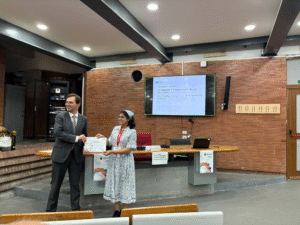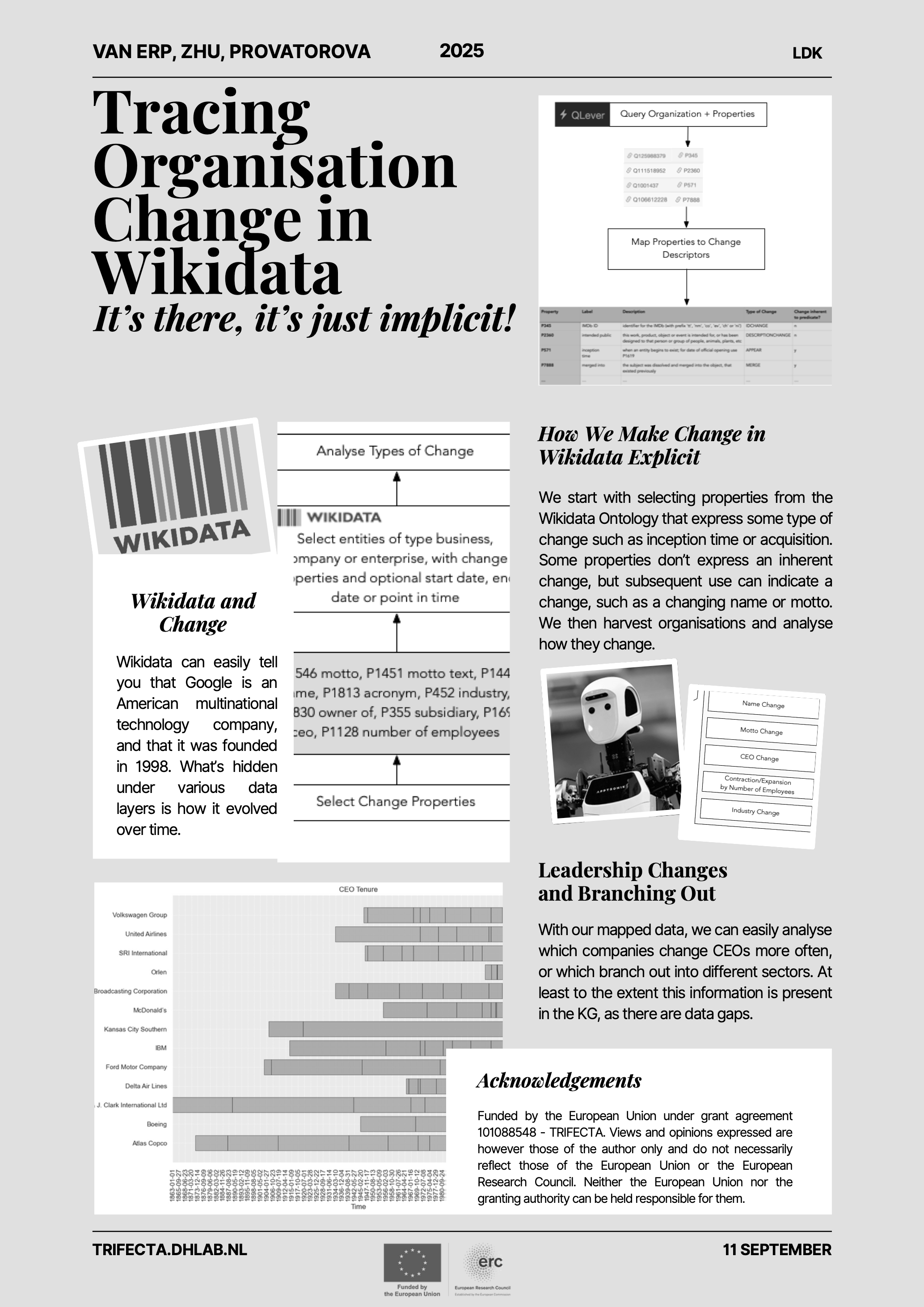
In September, team members Gauri, Jiaqi, Marieke, Rik, and Teresa travelled to Naples, Italy to attend and present at LDK 2025, the 5th Conference on Language, Data and Knowledge. This conference is very central to the different research strands in the project, so it was great to (re)connect with colleagues and see what they are working on (and eat great food).
We presented the following papers:
- Veruska Zamborlini, Jiaqi Zhu, Marieke van Erp, and Arianna Betti. Philosophising Lexical Meaning as an OntoLex-Lemon Extension. (presented at the satellite OntoLex workshop). This research is part of our knowledge modelling strand and in this paper we investigated how we can represent different aspects and meanings of a concept through time or in different contexts;
- Gauri Bhagwat, Marieke van Erp, Teresa Paccosi, Rik Hoekstra. Detecting Changing Culinary Trends Through Historical Recipes. This research is part of our food history use case, and presents an analysis of different editions of a cookbook as well as newspaper recipes to see how ingredient use changes over time;
- Marieke van Erp, Jiaqi Zhu, Vera Provatorova. Tracing Organisation Evolution in Wikidata. This paper is an investigation of how change is represented in one of the largest and most commonly used knowledge graphs. As we are considering feeding any data generated within the project back into this, it is necessary to know if existing data models are a suitable fit;
- Andrea Schimmenti, Stefano De Giorgis, Fabio Vitali, Marieke van Erp. Old Reviews, New Aspects: Aspect Based Sentiment Analysis and Entity Typing for Book Reviews with LLMs. In this collaboration with the University of Bologna and the Italian National Research Council, we investigated the use of large language models to analyse opinions in a data-scarce domain. Whilst we used a different use case domain than TRIFECTA’s main maritime and food history use cases, we think it is important to see what connections to other domains we have and how tools work there to see if we can translate them to our use cases.
While it’s already great to get papers accepted to a conference and present and discuss them with colleagues, it was even cooler to see our efforts recognised by the fact that Detecting Changing Culinary Trends Through Historical Recipes coordinated by Gauri won the Best Student Paper Award and our Tracing Organisation Evaluation in Wikidata paper won the Best Poster Award!


